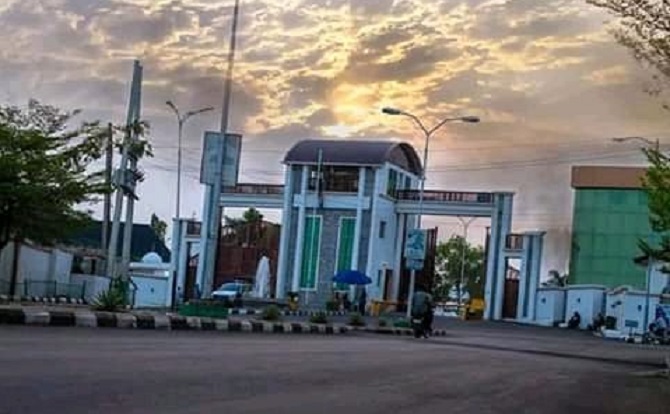Hurray, Kogi state is born today! The famous confluence city is 31 years old. It was created in 1991 by the military President, General Ibrahim Babangida, and prior to the dissolution of European association- the Union of Soviet Socialists Republic (U.S.S.R) in the late 90s, Kogi was born alongside some countries such as Belarus (Eastern Europe), Estonia, Latvia, Lithuania, and many others. Albeit, some of these countries got their independent before 1991, they were not recognized by the United Nation until that year.
Again, Kogi was formed from a portion of Kwara and Benue state, making it the foremost center state in the North Central Nigeria. It is the only state which shared boundaries with ten other states namely; Ekiti and Kwara to the East, Federal Capital Territory to the North, Nasarawa state to the Northeast, Niger state to the Northwest, Edo and Ondo to the Southwest, Anambra and Enugu to the Southeast, and Benue to the West. It is the thirteenth largest and twenty most populous state with estimated population of 4.5 million (as at 2016). Igala speaking extracts are the largest ethnic group residing in the eastern part of the state.
Since creation, it saddled six democratically elected governors and three military administrators with the Igala ethnic group mostly featured since the advent of the third and fourth republic leveraging its population demographics to hold the liver of power continuously until the demise of Prince Abubakar Audu.
It therefore engraves evaluation appetites on how Kogi East, the ruling district has fared. It also illuminates depth-curiosity on our leaders at various levels, lawmaking chambers (the senate) in particular. Hence, the pertinent question- Kogi at 31, Igala/Bassa, where are we?
Is it wrong to say that, at 31, Kogi state should compete with the rest of the world? Do I consider it a work in progress since genuine development is by default a gradual process? Will it be out of context insinuating that, by virtue of endowment, the state should be at the forefront of National decision? On what crest do we justify Kogi East as a district which has produced topnotch leaders considering the late Chief Awolowo’s impression of ethnic government? Better still, what were the imports of leadership in Kogi East?
Aside been densely populated district in the state, Dekina Local government is arguably the largest in west Africa. The constituency has legal luminaries in quantum, if not the highest in Nigeria, and with the discovery of Ibaji oil, it recently joined oil producing states but with shared benefits. The point therefore is, how has these resources been effected for the benefit of the citizenry? How do we consider the district if entire leadership (Kogi East faction) is holistically appraised?
Without equivocation, Kogi East is still at the back seat in the climes of other constituencies. It is more telling by the redundant nature of the entire state. Social welfare and security is next to nothing. Absence of sound legislation has afforded the neighboring state sharing from our common patrimonies. Linguistically, Igala shouldn’t be the ninth famous language in Nigeria and Okura state shouldn’t have tarried.
Unfortunately, all these and more, are hopes in distant illusion. Our grievances are buried in our hearts. Rejuvenation template is unjustly explored in exhilaration of hidden interests. Democratic pretenders had infiltrated the polity with perfidious intentions. Their activities are retrogressive in disguise. Very many of them do not love fatherland genuinely. At best, they complicitly assume public office as the quickest route to wealth acquisition. In the end, they are more sophisticated by a situation of hopelessness. This is why wealth distribution formula is in the ratio of two to Ninety-Eight, wherein, a paltry few ravishes in superfluity while the bulk of others wallow in penury and wants.
Fellow Kogi Easterners, as stakeholders in leadership fulcrum, this wonderful moment calls for reflection. It adores a gentle walk-through with memory lane to bring to fore the very essence of our beauty to henceforward realize that, if our corporate existence must be sustained, we ought to be deliberate in taking the future in our hands.
We must go to the rubrics of our socioeconomic and political complications, identify and define such complications (which is presumably leadership), then we can begin to lay a solid foundation for the society we seek. Bad leadership is often the bottle-neck. It has birthed insecurity, unemployment and corruption. We must be deliberate in trashing it. Remember, a people who elect corrupt leaders are not victims, they are willing accomplices.
At 31, it is practically impossible to boast of the progress we’ve made. It is also abysmal (if not sacrilegious) to consider engaging the extant crop of leaders any further. But here is what we can do; we must unanimously accept a template for our henceforth-Kogi east, and state. Then, we can go all out in search of the best brains who can do the job, not procrastinators. We must put behind the ruddy complexion of Political inclinations, social rapports, ethnic inference and religious adherences.
A working Kogi East is sacrosanct; it is possible if we want.
Happy 31st birthday Kogi state, the land of the rising sun, my confluence of opportunities.
– John Paul writes from Lagos.
Pauljohnk5@gmail.com




